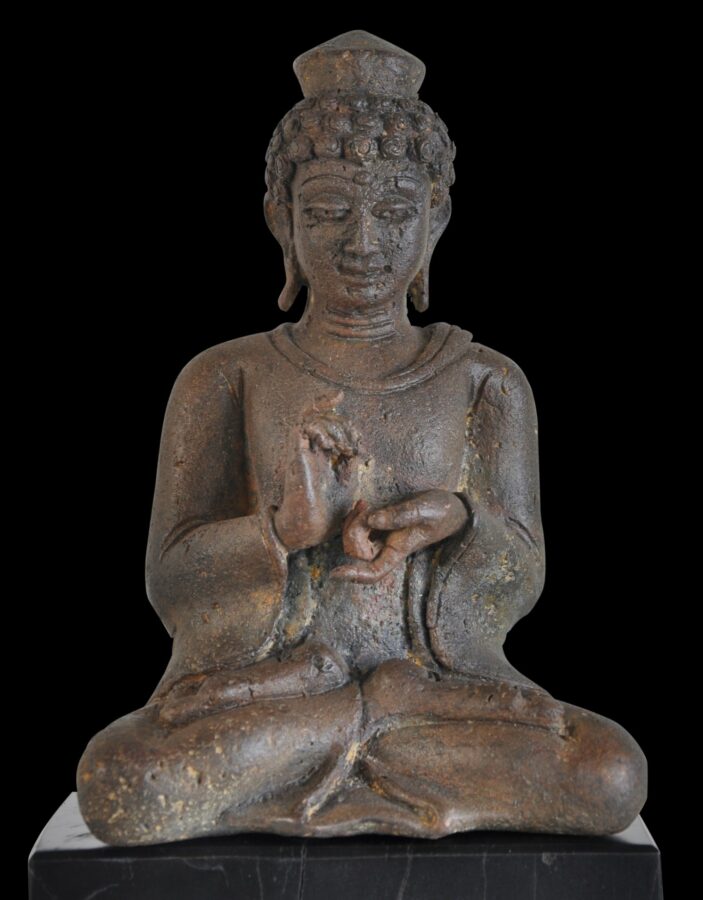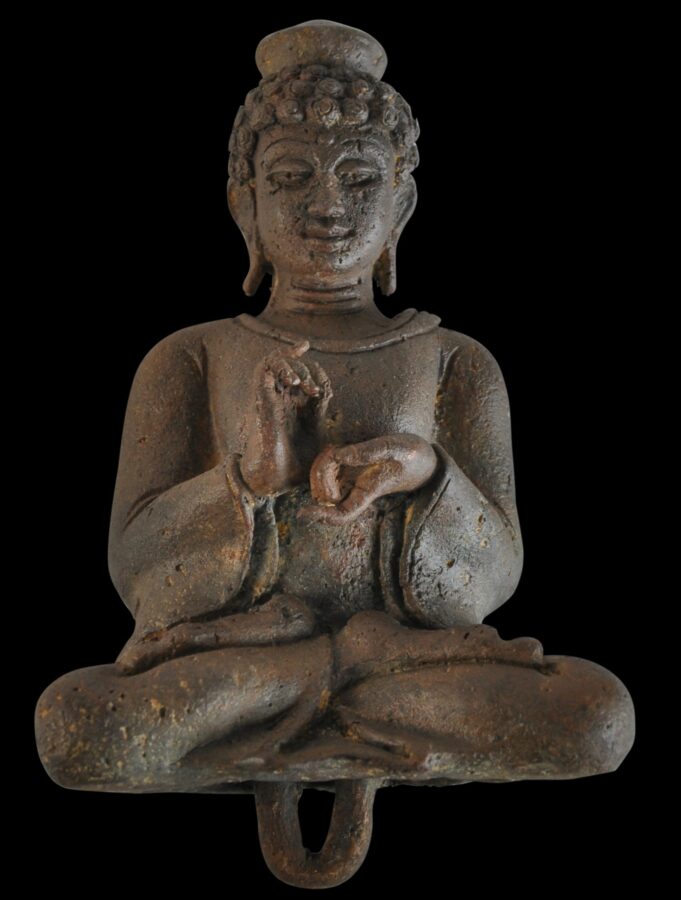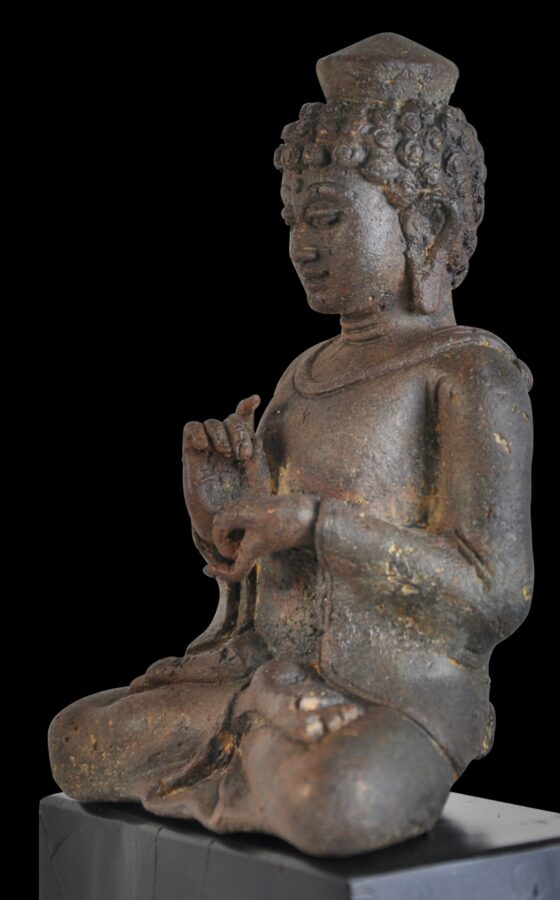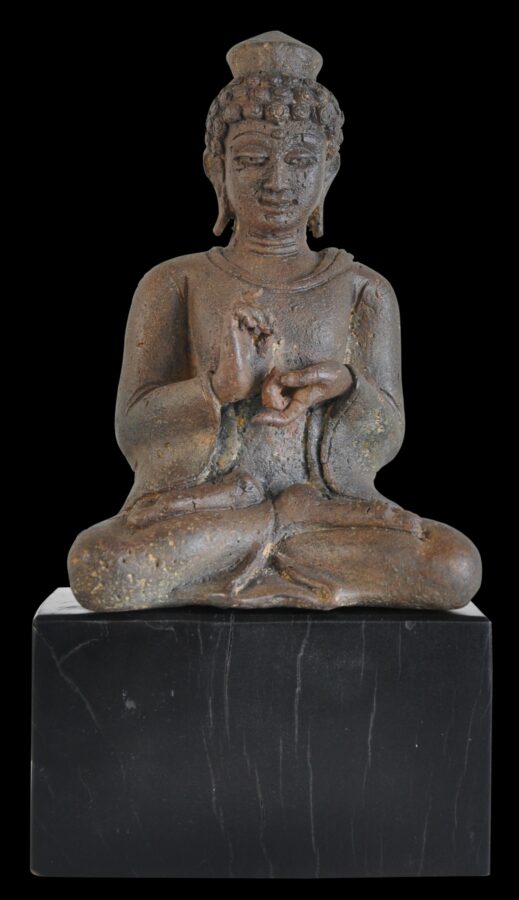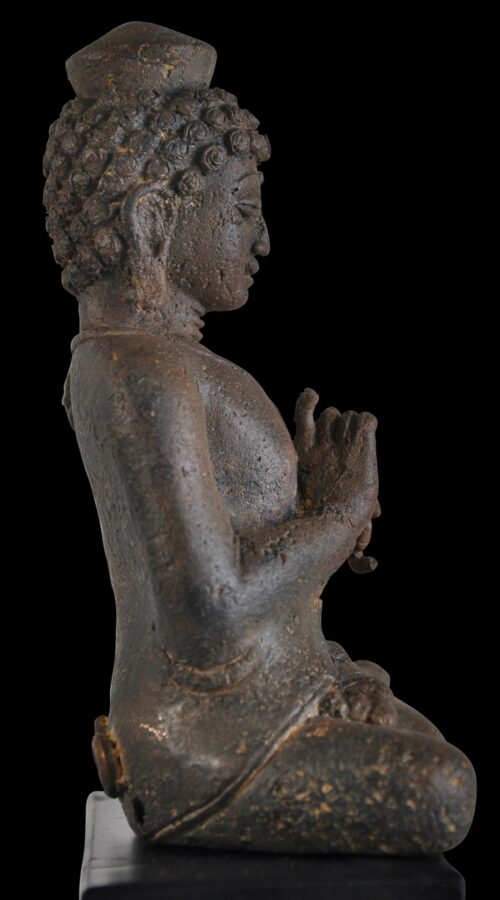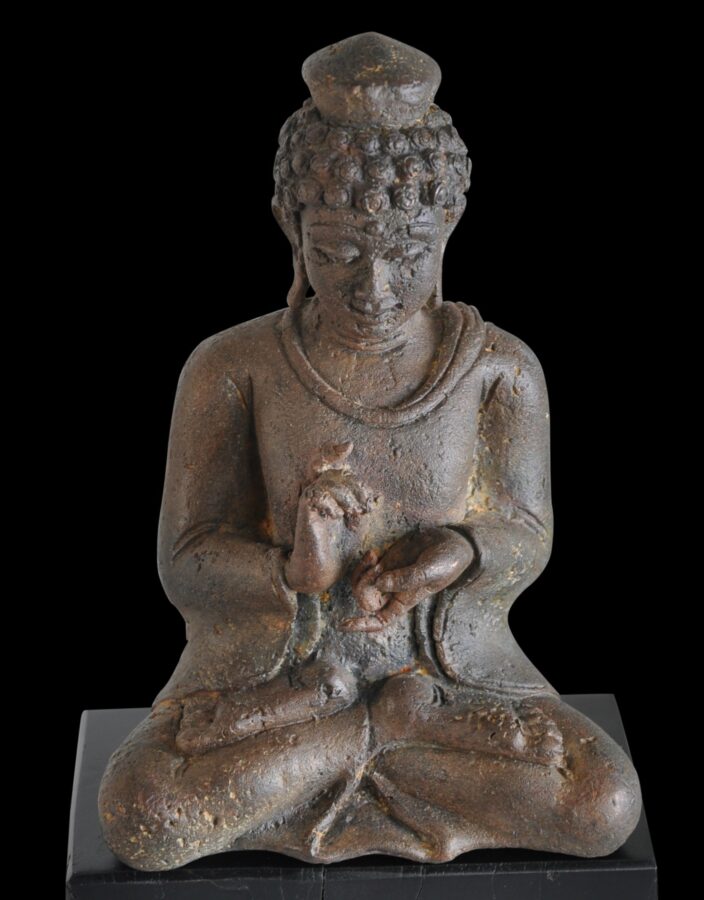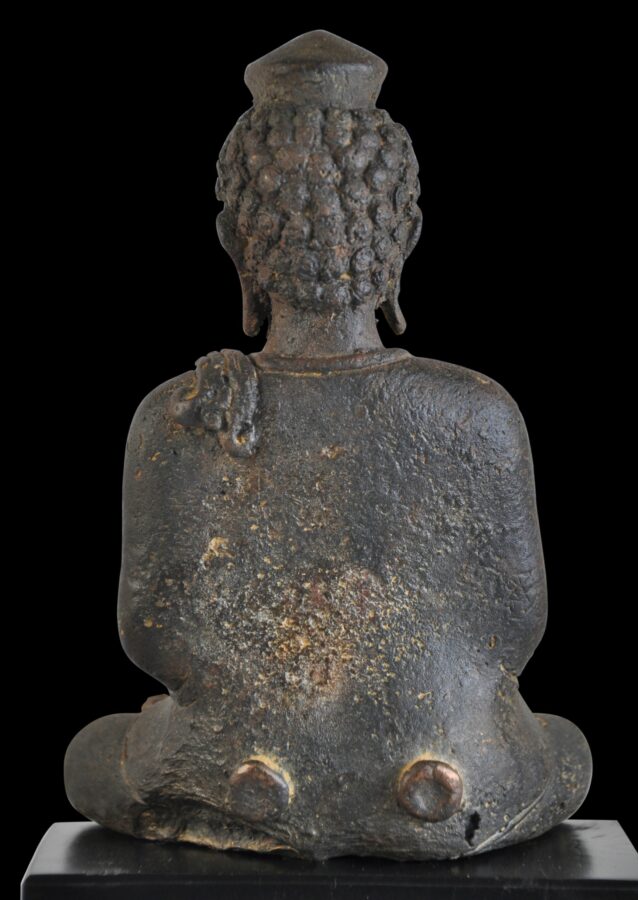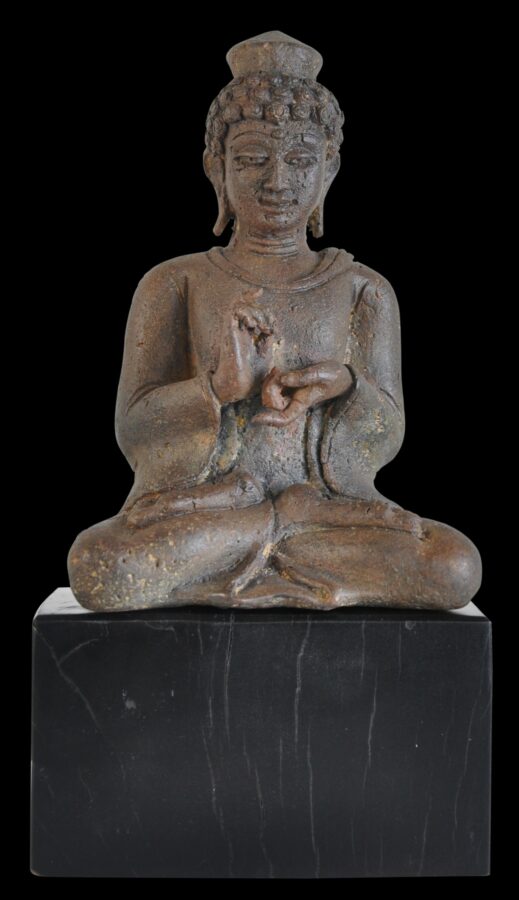Enquiry about object: 8807
Unusual Srivijaya Cast Bronze Buddha
Srivijaya kingdom - Sumatra, Indonesia & Malay Peninsula, incl. southern Thailand 7th-8th century
height (with stand): 18.4cm, width: 9.7cm, depth: 5.6cm, weight (without stand): 1,252g
Provenance
private collection, UK
This unusual, unorthodox image of the Buddha, cast in bronze, shows the Buddha seated cross legged, with hands in dharmachakra teaching position.
The image is from the Srivijaya kingdom centred on south Sumatra and dates to the 7th-8th century. Srivijaya was an early Malay, pre-Islamic, Buddhist kingdom with strong trade links to the region. It was also a centre for missionary activity by monks and scholars from India who spread Buddhism and then Hinduism to the region.
The image has a pleasing face and the features are delicately rendered, as are the fingers which are complete with finger nails.
The image has tight curls in neat rows about the head and a highly unusual and large, cap-like ushnisha. Such an unusual ushnisha underscores the syncretic and unorthodox nature of many Srivijaya bronzes – it is an under-researched field and examples in museums do not adequately represent the full scope and diversity of bronzes that are being discovered.
The robes have plentiful folds including an end fold that falls over the left shoulder.
The reverse has two seal-like protuberances on the lower back. This feature follows early Indian bronzes that were exported to Sumatra and Java at around the same time.
The base of the image is hollowed out and there is a rounded lug that would have allowed the image to be secured to a platform.
The surface patina is consistent with the image having spent a long time in wet soil (and then having been cleaned.) This is consistent with what we know about the Srivijaya kingdom – its key settlements were built along and over river estuaries, that the culture was riverine and its commerce was based on sea and river trade.
The image rests on a custom-made black, wooden stand. The image itself is in fine condition.
References
Guy, J., Lost Kingdoms: Hindu Buddhist Sculpture of Early Southeast Asia, Metropolitan Museum of Art, 2014.
Kempers, A.J.B., Ancient Indonesian Art, CPJ ven der Peet (Amsterdam), 1959.


